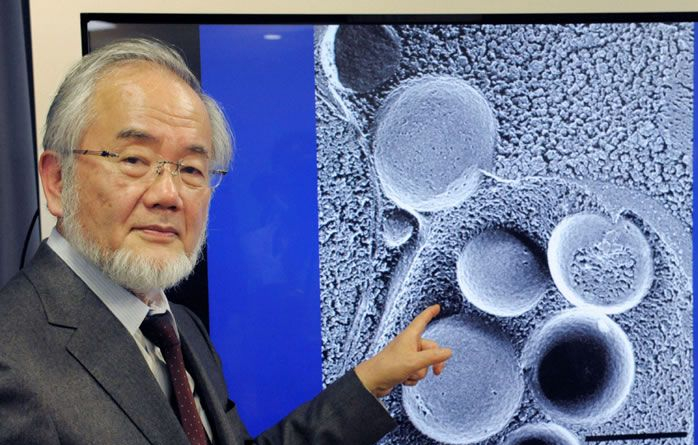2016年10月3日,诺贝尔生理学或医学奖得主揭晓。日本科学家大隅良典(Yoshinori Ohsumi)因其在细胞自噬研究中的贡献,独得这一奖项。
作为一名研究方向和自噬“沾点边”的研究生,自然少不了关注各路消息。有关于大隅良典老先生本人的,有关于他的研究的,也有国内媒体对今年诺奖的解读。其中最能触动我的不是我的方向可能会在今后的几年中成为一个热点,而是:他从1988年开始专注于自噬这个生物学领域中相对冷门的方向进行相关研究至今。
大隅良典教授博士毕业的第15年,也就是1988年才成为副教授,开始独立研究。开始他的研究方向是酵母液泡的物质转运,不久后他转而对酵母液泡降解机制进行深入研究,最终他的情怀和专注在近30年后给了他回报。
还记得去日本旅游时,导游说日本人都是一根筋。可从近年来日本人获得诺奖的情况来看,我们有时少的就是那一根筋。中国无论是科研投入还是论文数量早已今非昔比,然而在诺贝尔奖这样级别的较量上,却被一海之隔的日本远远甩在身后。大隅良典教授说他成功的诀窍是“从事真正感兴趣的研究,开展没有人研究的新领域,建立研究新领域的独特研究方法。”其实在我看来,兴趣是他开展研究的前提和坚持研究的动力,而真正使他获得成功的,是认真和执着。
因为大隅良典教授是日本人,这让我想到了被称为“寿司之神”的小野二郎。作为全球最年长的米其林三星大厨,终其一生,他都在握寿司,并永远以最高标准要求自己和学徒。为了确保客人享受到究极美味,他会观察客人的用餐状况并微调寿司。为了保护创造寿司的双手,他在不工作时永远带着手套,连睡觉也不懈怠。他的寿司店“数寄屋桥次郎” 只是隐身于东京办公大楼地下室的一间小店面,可他们的寿司从食材、制作到入口瞬间,每个步骤都经过缜密计算。这两个不同领域的领军人物的成功,提醒我们方向并无优劣,付出决定结果。
最后附上摘自科学网的大隅教授给年轻科学家的赠言,与各位共勉:
"Today's young people approve of 'research in the service of humanity,' while maintaining a steady and conservative outlook. That calls for research on humans rather than on yeasts or mice. However, you can answer the most basic and important questions about the nature of life through yeasts. My research was able to explain autophagy precisely because I was working on yeasts and could observe them under an electron microscope. Basically, it's not easy to define what will serve humanity - nuclear power is a good example. So my message to all of you, who want to pursue a career in science, is to do what no one else is doing, and do what you find truly interesting. Research isn't easy. However, if you're really drawn to a subject and you're interested in it, you'll certainly overcome all the obstacles, even if, say, your work isn't appreciated for a time. You only live once. Others aren't interested in trivia. In the end, you have to want to taste the pleasures of success after all is said and done."
